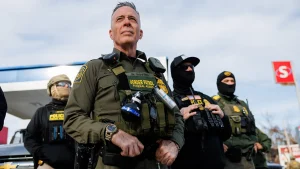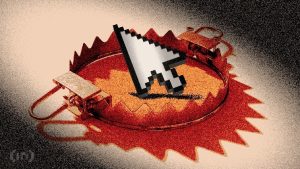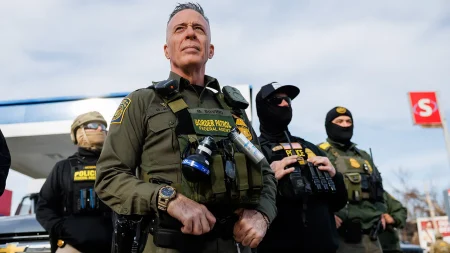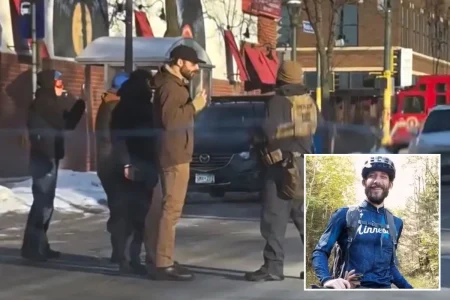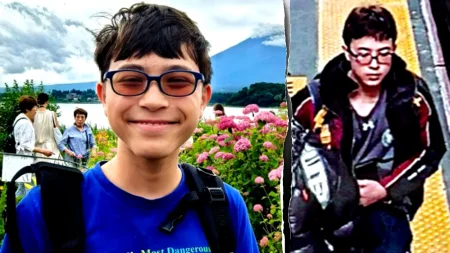Israel Eliminates Hezbollah Military Chief in Strategic Lebanon Airstrike
In a significant escalation of regional hostilities, Israel has conducted a precision airstrike targeting and killing Hezbollah’s military chief of staff in Lebanon. The operation, which struck an apartment building, marks one of the most high-profile assassinations in the ongoing shadow war between Israel and the Iran-backed militant organization. This development represents a major blow to Hezbollah’s command structure and signals Israel’s determination to neutralize what it considers imminent threats along its northern border.
The targeted elimination comes amid mounting tensions between Israel and Hezbollah, a powerful political and military force in Lebanon that maintains close ties with Iran. According to Israeli intelligence sources speaking on condition of anonymity, the operation was the culmination of months of surveillance and operational planning. “This was not a spontaneous decision, but rather a calculated move based on concrete intelligence indicating the military chief was actively coordinating attacks against Israeli civilians,” said one senior Israeli defense official. The precision strike reportedly utilized advanced munitions specifically designed to minimize collateral damage while ensuring the elimination of the high-value target.
Hezbollah’s Leadership Vacuum and Regional Implications
The death of Hezbollah’s military chief creates an immediate leadership vacuum within one of the region’s most sophisticated non-state armed organizations. The deceased commander, who had evaded multiple previous assassination attempts, was responsible for overseeing Hezbollah’s vast arsenal of precision-guided missiles, coordinating military operations, and maintaining the group’s extensive intelligence network. Middle East security analysts suggest that while Hezbollah maintains a deep bench of experienced commanders, the loss of such a senior figure will likely disrupt operational capabilities in the short term.
Hezbollah, formed in the early 1980s with Iranian support, has evolved from a guerrilla movement into what many consider a state within a state in Lebanon. The group’s military wing possesses an estimated 150,000 rockets and missiles capable of reaching deep into Israeli territory. Dr. Marwan Kabalan, Director of Policy Analysis at the Arab Center for Research and Policy Studies, notes that “Hezbollah has demonstrated remarkable resilience following previous leadership losses, but the elimination of its military chief represents a significant challenge to its command and control infrastructure.” The assassination occurs at a particularly volatile moment, with Hezbollah having increased rocket attacks against Israeli military positions in recent weeks, ostensibly in solidarity with Palestinian factions.
Civilian Impact and Diplomatic Fallout
The airstrike on the residential apartment building has raised serious humanitarian concerns, with Lebanese health officials reporting that several civilians were injured in the operation. Lebanon’s Prime Minister condemned the attack as “a flagrant violation of Lebanese sovereignty” and called for an emergency session of the United Nations Security Council. International humanitarian organizations have expressed alarm over the continued targeting of urban areas, with the International Committee of the Red Cross urging all parties to take “every feasible precaution to protect civilian lives and infrastructure.”
The diplomatic consequences of the operation have reverberated across the region and beyond. The United States, while reaffirming Israel’s right to self-defense, has urged restraint from all parties. “We continue to work through diplomatic channels to de-escalate tensions and prevent a broader regional conflict,” said a State Department spokesperson during a press briefing in Washington. Meanwhile, Iran’s Foreign Ministry issued a stark warning that “the Zionist regime will face severe consequences for this cowardly assassination.” European Union foreign policy chief Josep Borrell called for “maximum restraint” while expressing concern about the potential for rapid escalation that could engulf the wider Middle East.
Strategic Calculations and Israel’s Northern Front
For Israel, the decision to target such a senior Hezbollah figure reflects growing concern about the organization’s expanding military capabilities and operational boldness. Israeli Defense Minister Yoav Gallant recently characterized Hezbollah as “the most significant immediate threat to Israel’s security,” citing intelligence assessments that the group has been positioning advanced weapons systems closer to the border. The Israeli military has reportedly been preparing contingency plans for a potential full-scale conflict with Hezbollah, which military planners acknowledge would be far more destructive than previous confrontations.
“Israel’s strategic calculus appears to be that targeted eliminations of key leadership figures provides more security benefit than the risk of escalation they entail,” explains Dr. Eyal Zisser, Vice Rector of Tel Aviv University and an expert on Lebanon. “However, history suggests such operations often lead to cycles of retaliation and counter-retaliation.” The Israel Defense Forces have placed northern communities on high alert following the strike, activating additional Iron Dome anti-missile batteries and restricting civilian movement in areas within range of Hezbollah rockets. Civil defense authorities have conducted emergency preparedness drills in anticipation of potential retaliatory strikes.
The Broader Geopolitical Chessboard
This latest escalation cannot be viewed in isolation from the broader geopolitical competition playing out across the Middle East. Hezbollah represents a critical component of what Iran calls the “Axis of Resistance” – a network of allied non-state actors that includes Hamas in Gaza, various militias in Iraq, and the Houthi movement in Yemen. Through these proxies, Iran projects power and influences regional dynamics while maintaining plausible deniability for direct attacks against its adversaries.
The elimination of Hezbollah’s military chief coincides with ongoing international negotiations regarding Iran’s nuclear program and comes amid a period of heightened regional instability. “What we’re witnessing is the ongoing reconfiguration of power relationships across the Middle East,” observes Dr. Sarah Feuer, senior fellow at the Washington Institute for Near East Policy. “The question now becomes whether this operation will remain an isolated incident or whether it will trigger a broader conflagration involving multiple actors across multiple fronts.” As Israel and Hezbollah calculate their next moves, regional states and global powers alike find themselves navigating an increasingly unpredictable security landscape where miscalculation could have profound consequences for regional stability.
The assassination of Hezbollah’s military chief of staff represents a significant tactical victory for Israel but leaves open questions about strategic outcomes. While the operation demonstrates Israel’s intelligence capabilities and operational reach, history suggests that decapitation strikes rarely achieve lasting strategic objectives against deeply entrenched organizations like Hezbollah. As Lebanon braces for potential retaliation and international diplomats work to prevent further escalation, the coming days will reveal whether this high-profile elimination marks the beginning of a new chapter in the long-running conflict or merely another bloody episode in a seemingly intractable regional struggle.

